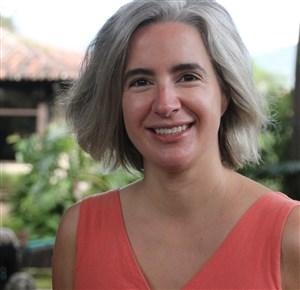Written by Dr Denise Raquel Dunning
Nigeria, one of the richest countries in Africa, also boasts one of the world’s highest rates of maternal, newborn, and child death. One in 13 Nigerian women dies during pregnancy or childbirth, and one in 8 Nigerian children dies before their fifth birthday.
And Nigeria is not alone. The global realities are equally devastating – nearly three million newborn babies die annually, and 800 women die in childbirth every single day. That means that two women will die by the time you finish reading this article – assuming you read fast.
While the numbers are shocking, it’s even more horrifying to realize that nearly 90% of these deaths are avoidable: women, newborns, and young children die from preventable conditions like hemorrhage, premature birth, malnutrition, and malaria.
Simply put, here’s what these statistics mean –
Aisha didn’t have to bleed to death during childbirth.
Baby Efe didn’t have to asphyxiate in his first minutes of life.
Two year old Tosin didn’t have to die from diarrhea.
All of these lives could have been saved – easily and inexpensively. But in an age of unprecedented medical innovation, we are still failing to save the lives of poor women and their children.
The challenges may appear intractable, but the solution is simpler than you think.
The international community needs to invest in the country-based leaders who have the power to transform the health of their own communities. We need to invest in the civil society leaders and organizations who fight every day to save the lives of women and children.
This strategy lies at the core of Champions for Change, a new initiative supported by the Bill and Melinda Gates Foundation in Nigeria. Champions for Change empowers strong local leaders and organizations to advocate for the laws, policies, programs, and funding needed to improve reproductive, maternal, newborn, and child health (RMNCH) outcomes in Nigeria.
Champions for Change invests in the talent, vision, and potential of the Nigerian civil society leaders. These Champions ensure that Nigeria’s policies, systems, and services advance the health and rights of women and children. Champions for Change leverages the tested model of its sister initiative, Let Girls Lead, which has contributed to improved health, education, livelihoods, and rights for more than 3 million girls globally, as demonstrated by an external evaluation commissioned by the UN Foundation.
Following a highly competitive process, Champions for Change selected Nigeria’s best and brightest civil society leaders working across sectors – reproductive health, child nutrition, family planning, girls’ education, women’s rights, poverty reduction, HIV/AIDS prevention, media, and youth development – to scale up their innovative approaches to reduce maternal and child deaths in Nigeria.
The civil society leaders participating in Champions for Change know best the challenges facing their communities, and how to create scalable impact. These Champions bring the experience, cultural fluency, and vision needed to ensure that policies, programs, services, and funding respond to the realities of women and their children across Nigeria.
This week in Lagos, we are hosting the inaugural Champions for Change convening, launching a two-year process that integrates state of the art leadership development and organizational strengthening. An elite cohort of 24 leaders from 12 Nigerian organizations will participate in intensive advocacy capacity building, executive coaching, and organizational development.
These leaders will learn strategies to engage policymakers, traditional and religious leaders, and medical providers to create sustainable change, and how to empower women and communities to raise their voices for their own priorities. These Champions will also receive grant funding and technical assistance to develop scalable new strategies that sustainably improve the health and wellbeing of Nigerian women and children.
Saving the lives of women and children takes financial resources, political will, and savvy advocates who are undaunted by the enormity of the challenges they face. Investing in visionary local leaders and organizations is the most promising strategy to ensure that policies, systems, and services improve health outcomes. Nigeria’s women and children deserve no less.
This article was 1st published in Impatientoptimists Blog




